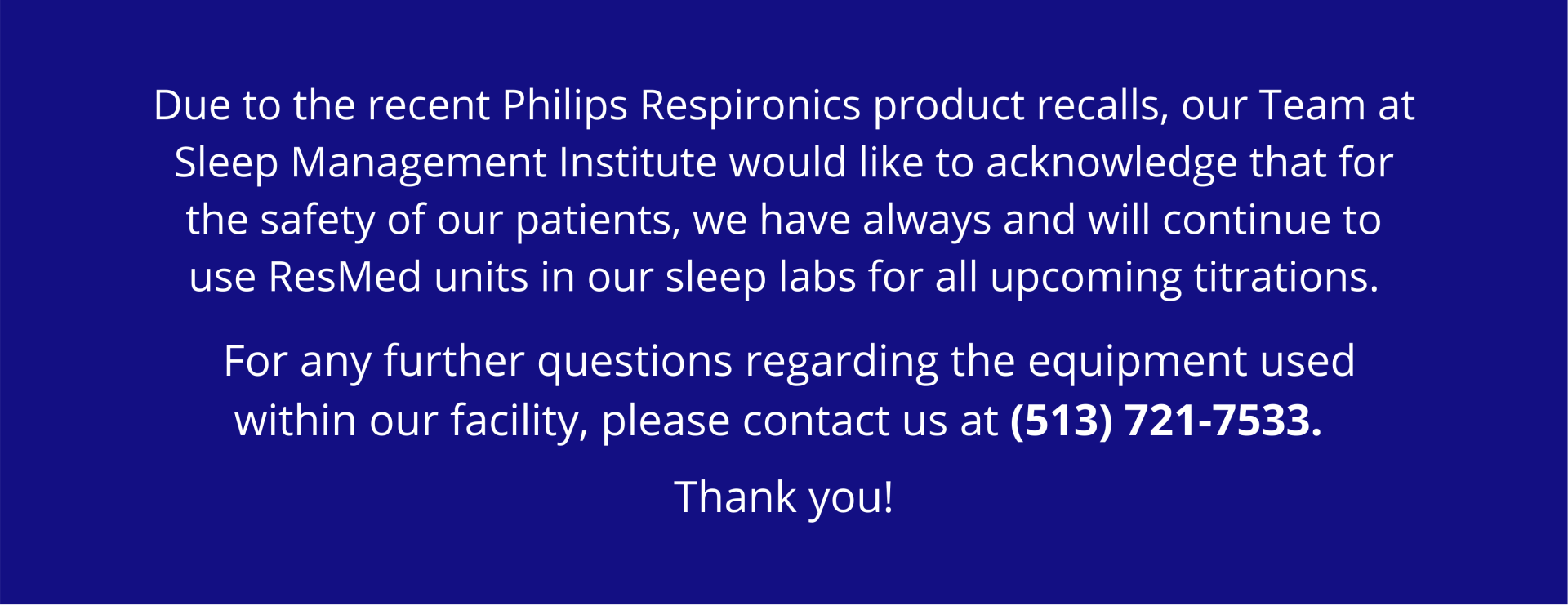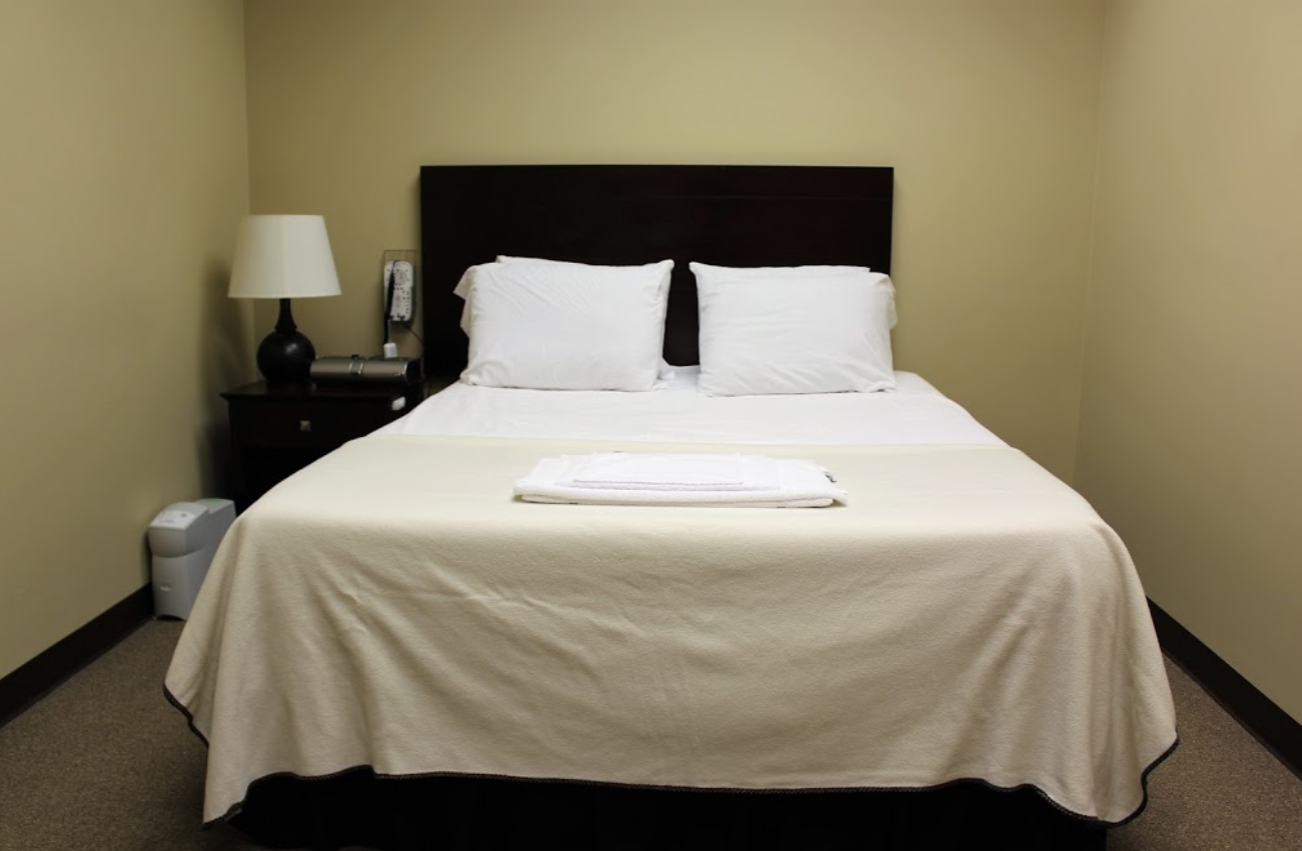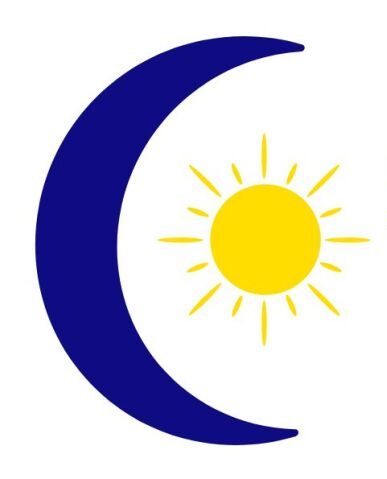Sleep Study
A sleep study is an easy and painless procedure typically performed overnight. During your stay at one of our sleep centers your sleep will be recorded from a separate room. Such things as your heart rate, sleep patterns, and respiratory activity will be monitored. Your privacy will always be respected and you will be treated with care and kindness. For additional information download our “What to Expect” brochure.
What to bring the evening of your Sleep Study
- Pack an overnight bag, as you would for an overnight stay at a hotel
- Medication you need at night or morning, including aspirin and ibuprofen.
- Comfortable pajama pants and shirt. Electrodes will be placed on several areas of your body and head prior to bedtime.
- We will provide you with pillows and blankets.
- Books, magazines, cell phone or laptop– Internet connection is available.
- Night items such as toothbrush, snacks and decaffeinated beverages, and morning toiletries such as a hair dryer.
- If you are currently using C-PAP or Bi-Level therapy, please bring the unit on the night of your study.
If your sleep study is overnight only, a meal will not be provided when you leave in the morning. However, if you also require a daytime sleep study (Multiple Sleep Latency Test) following your overnight sleep study, we will provide breakfast following your overnight sleep study as well as lunch.
Sleep Study Itinerary
The following is a typical itinerary for most of our patients, however, we can make some changes in this schedule to accommodate your needs.
8:00PM Arrive
When you arrive, please have a seat in the waiting room. The technician will be out shortly. If you anticipate arriving late, please call the office and notify the staff during normal working hours.
8:00PM-11:00PM Pre-Study
The technician will show you to your bedroom and acquaint you with the equipment that will be used. You’ll then have a chance to change into your night clothes and watch television or read. Next, it’s time to prepare for the sleep study and it’s easy as 1-2-3. The technician will…
- Prep your skin for the electrodes with alcohol and a mild abrasive.
- Apply several electrodes to specific locations on your body using a special paste and medical tape.
- comfortably position flexible elastic belts around your chest and abdomen.
The electrodes and flexible belts are used to evaluate brain waves, eye and leg movements, breathing patterns, heart rate, oxygen levels, and more. Although the electrodes may feel strange at first most people do not find them to be an obstacle to falling asleep. The electrode wires are gathered in a way that allows you to roll and change positions comfortably.
11:00PM-6:00AM During the Night
These are the hours your sleep is monitored. We know your sleep at our center may not be exactly like your sleep at home. This usually does not interfere with obtaining the necessary information from your sleep study in order to arrive at an accurate diagnosis. The technicians will remain awake monitoring your sleep from a separate room and assuring your safety.
Two common concerns are being able to fall asleep and using the bathroom during the night. Most patients fall asleep quickly. If necessary, sleep medication may be offered to those who struggle falling asleep. And using the bathroom at night is easy. The electrode wires can be quickly disconnected by your technician and nearly all bedrooms have a private bathroom.
6:00AM Morning
The technician will wake you up when the study is completed. At that time the electrodes will be removed and you will have the opportunity to shower if available. Shampooing is required to remove all electrode gel used in your hair. This is usually completed by 7:00AM. Once the post-sleep study paperwork is completed you may leave. The technician cannot relay any findings of the study to you in the morning.

After the Sleep Study
Board Registered Sleep Technologists will review the data from your sleep study and a Board Certified Sleep Physician will then interpret the data.
If you do not already have a follow-up visit with your sleep physician, please contact the office to schedule one immediately after your sleep study.
Follow-Up Office Visit
During your follow-up visit the physician will discuss the results of your testing and, if necessary, work with you to match the most appropriate treatment option with your specific needs.
If diagnosed with sleep apnea and together with the physician you choose to treat it with CPAP therapy then a second sleep study will be scheduled called CPAP Titration.
30 - 90 Day Follow-Up Office Visit
Our staff and the DME company will continue to work with you to make sure you are comfortable with the CPAP and are using it consistently.
Between thirty-one and ninety days after the CPAP Titration sleep study, you’ll visit the physician to discuss the effectiveness of the treatment. In addition, any questions or concerns that you may have will be addressed.
CPAP Titration Sleep Study
This sleep study is identical to your initial sleep study except with the addition of a CPAP device. The purpose of this sleep study is to find the ideal CPAP settings for the effective treatment of sleep apnea.
To begin this sleep study, the technician will patiently work with you to select the CPAP Mask that fits most comfortably and will provide further CPAP education.
Throughout the night as you sleep and from a remote location, the technician will adjust the pressure settings on the CPAP device until an ideal treatment level is reached.
After this sleep study, a prescription will be submitted to the durable medical equipment (DME) company that will provide your CPAP. You will either receive your CPAP after your study or will be contacted shortly after to setup a time to receive it.
Ongoing Care
Once you’re comfortable and consistently using the CPAP, you’ll be followed up with periodically to address any additional questions that may arise.
From this point on, 6 month/annual visits should be made to ensure long-term treatment effectiveness and to meet with the guidelines of your insurance plan. During the this visit, the CPAP will be evaluated for proper functioning, CPAP mask issues will be addressed, and changes in your health will be evaluated as it relates to treatment.




